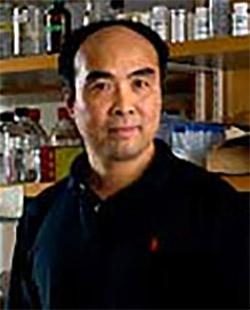YiPing Chen, PhD
Professor of Cell and Molecular Biology

Biography
Dr. Chen received his B.S. in Biology in 1982 and M.S. in Developmental Biology in 1985 from Fujian Normal University in China. He then received his Ph.D. in Developmental Biology from the University of Iowa in 1993. After postdoctoral training with his Ph.D. mentor Dr. Michael Solursh at the University of Iowa, he carried out further postdoctoral studies with Dr. Richard Maas at the Harvard Medical School where he was promoted to Instructor in Medicine in 1996. In 1997 Dr. Chen took an Assistant Professor position in the Department of Cell and Molecular Biology, Tulane University. He was promoted to Associate Professor and appointed as Director of Division of Developmental Biology in 2001. Dr. Chen's Research focuses on the genetic control of vertebrate organogenesis. His particular interests include the role of homeobox genes and growth factors in the epithelial-mesenchymal interactions that lead to organ formation. One major project studies molecular mechanisms of tooth initiation and patterning. Currently, the project involves identifying genes involved in vertebrate tooth initiation and their expression regulation, studying the origin of tooth developmental potential, studying the patterning of incisor and molar teeth and genes involved in this process and studying the molecular basis of recombinant tooth formation (a model for tooth regeneration). Dr. Chen's research also studies the molecular basis of non-syndromic cleft palate caused by gene mutations in mammals. Cleft palate is one of the most frequent congenital birth defects in human being. It occurs annually with a frequency of 1 in 700 to 1,000 live births among individuals of European descent. Non-syndromic cleft palate arises from genetic or environmental perturbation in the multi-step process of palate development. Similar to human beings, mutations in the Msx1 gene cause non-sydromic cleft palate in mice. The lab is currently examining the role of Msx1, Dlx1, Dlx2, Bmps, Shh and Fgfs in mouse palatogenesis. Dr. Chen's work includes research on the molecular basis of situs inversus in vertebrate animals. Situs inversus occurs with a frequency of one out of 8,000 live births in humans. It was just recently demonstrated that positioning of internal organs is regulated by a cascade of genetic pathways involving a number of genes. Dr. Chen's lab has been studying the role of transcription factor Pitx2 in the regulation of heart looping. They have recently cloned two novel genes in the chick that show a potential involvement in left-right asymmetric determination during early embryonic development. Functional analyses of these two genes are in progress.
Research
Tulane Cancer Center Associate Member
Contributions
St. Amand TR, Zhang YD, Semina E, Hu YP, Zhao X, Murray J, Chen YP. Antagonistic signals between BMP4 and FGF8 define the expression of Pitx1 and Pitx2 in mouse tooth forming anlage. Dev Biol 217: 323-332 (2000)
Zhang ZY, Yu XY, Zhang YD, Geronimo B, Lovlie A, Fromm SH, Chen YP. Targeted misexpression of constitutively active BMP receptor-IB causes bifurcation and duplication and posterior transformation of digit in mouse limb. Dev Biol 220: 154-167 (2000)
Chen YP, Zhang YD, Jiang T-X, Barlow AJ, St. Amand TR, Hu YP, Heaney S, Francis-West P, Chuong C-M, Maas M. Conservation of early odontogenic signaling pathways in Aves. Proc Natl Acad Sci USA 97: 10044-10049 (2000)
Zhao X, Zhang ZY, Song YQ, Zhang X, Zhang YD, Hu YP, Fromm SH, Chen YP. Transgenically ectopic expression of Bmp4 to the Msx1 mutant dental mesenchyme restores downstream gene expression but represses Shh and Bmp2 in the enamel knot of wild type tooth germ. Mech Dev 99: 29-38 (2000)
Yu XY, St. Amand TR, Wang S, Li G, Zhang YD, Hu YP, Nguyen L, Qiu MS, Chen YP. Differential expression and functional analysis of Pitx2 isoforms in regulation of heart looping in the chick. Development 128: 1005-1013 (2001)
Wang SS, Yu XY, Zhang T, Zhang XY, Zhang ZY, Chen YP. Chick Pcl2 regulates the left- right asymmetry by repressing Shh expression in Hensen's node. Development 131, 4381-4391 (2004)
Alappat S, Zhang ZY, Suzuki K, Zhang XY, Liu HB, Jiang RL, Yamada G, Chen YP. The cellular and molecular etiology of cleft secondary palate in Fgf10 mutant mice. Dev Biol 277, 102-113 (2005)
